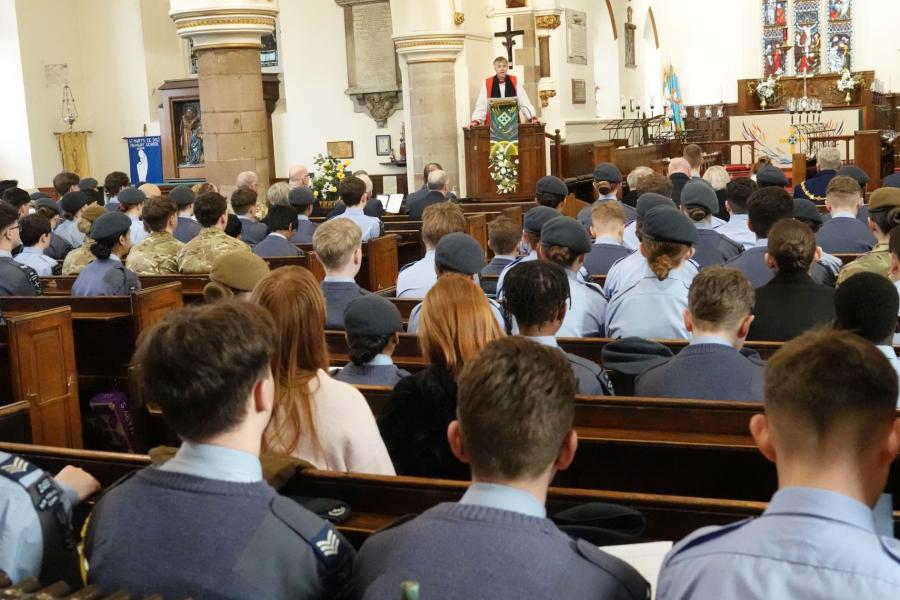Building Communities of Justice
by Dick Johnson, joint lead chaplain to West Mercia Police, and Hereford and Worcester Fire and Rescue Service, as well as Development Officer for Faith at Work in Worcestershire (FWW)
‘Keep the commandments of the Lord your God and his decrees that I am commanding you today, for your own well-being.’ Deuteronomy 10:13
Quite often justice seems mostly to be about individuals – about what we might do to act justly ourselves, perhaps in the consumer choices we make, or about how ourselves or someone else is denied justice – how people suffer injustice.
But justice is also the foundation of a healthy community, helping to shape how we relate to one another. For the people of Israel it was a vital part of their 40 years journey in the wilderness towards the promised land, that God gave them the laws by which they, as His people, were to live. These rules were not just about how they would treat each other, but about how they were to relate to God, and God to them.
The laws by which we find ways to live together in our society in Britain, and indeed in the international community, are rooted in this ancient experience, but they are always developing and changing to meet the changing context. COVID is one example of this. Suddenly we were faced with all sorts of restrictions, enforcible by law. Penalties for breaking the law were mostly in the form of fines.
In my own chaplaincy with West Mercia Police I saw how there was a real challenge for officers in how to police these new laws. It was a remarkable aspect of that time that, for the most part, people abided by the law, recognising that the common good was served by following the rules. And when there were, for example, breaches of rules of assembly, the number of people allowed to meet together, the police adopted a four stage approach – engage, explain, encourage, and only finally as a last resort, enforce.
For many situations of reported breaches of the rules engaging, explaining and encouraging was enough, and enforcement proved unnecessary. The vast majority of people saw the need to follow the rules – for the sake of the common good.
So, law and justice are not just about establishing and upholding rights but also about accepting our responsibilities we have towards others, not to act or behave in ways which damage but discovering a way to live together in peace and respect. Laws make a just society possible, but it is our taking responsibility for our neighbour that makes it a reality.
We also see how community and justice are connected when we consider matters of economic justice or climate justice. This is less to do with specific laws, and more to do with helping everyone understand that we cannot see justice flourish unless all are included within the community – especially the most vulnerable and the poor. One piece of political rhetoric we have become familiar with recently is levelling up; making sure that no one, and no part of our community – or indeed world - gets left behind. But justice can’t be truly established just by levelling up; it requires also a degree of levelling down.
For justice to be done; for a just community to be established, it is not only that we need laws to live by, boundaries to our behaviour. It is that we are prepared to take responsibility for our neighbour, especially those of us with more than our fair share of God’s good gifts.
Dick Johnson, is joint lead chaplain to West Mercia Police, and Hereford and Worcester Fire and Rescue Service, as well as Development Officer for Faith at Work in Worcestershire (FWW), the Ecumenical Charity that supports workplace chaplaincy across the county.
Like its sister charity in the black Country, the Black County Urban Industrial Mission (BCUIM) Faith at Work in Worcestershire works with congregations to encourage their engagement with their local economy. Across police, fire and retail chaplaincy, amongst others, Dick works with more than 30 volunteer workplace chaplains.

#LiveLent: Embracing Justice is the Church of England’s theme for Lent 2022.
This Lent we are called to reflect on the injustices of the world and ask what God is calling us to do about them. Over forty days, we step into God’s work in the here and now – and in doing so we move from brokenness towards wholeness.
Find out more and download resources from the Church of England website.

